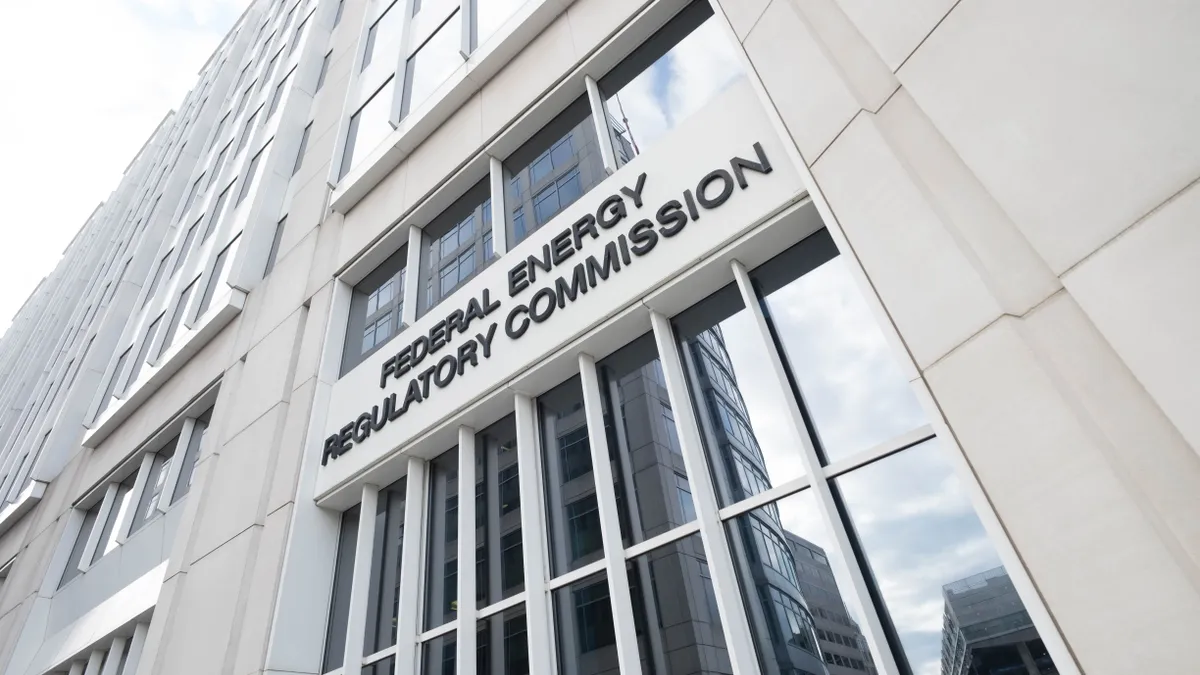The following is a contributed article by Guy Caruso, a former administrator of the U.S. Energy Information Administration and a Center for Strategic and International Studies senior adviser in the Energy Security and Climate Change Program
When it comes to U.S. energy policy, there are few bodies more influential than the Federal Energy Regulatory Commission (FERC). Comprised of five presidential appointees, FERC's mission is helping ensure customers have access to "economically efficient, safe, reliable and secure energy services at a reasonable cost." A hallmark of its work has always been independence and fairness, principles it practically applied when FERC famously rejected President Donald Trump's proposal to bail out coal and nuclear plants.
Unfortunately, FERC in recent months has departed from its role as a fuel-neutral regulator of power markets by demonstrating a troubling pattern of favoritism for renewables and discrimination against fossil fuels. This is a dangerous trend, especially considering President Joe Biden's ambitious decarbonization goals and the consequent modernization of the American electric grid that could require FERC's help.
In addition to the president's goals is his recent appointment to FERC of Willie Phillips, chair of the D.C. Public Service Commission and a Democrat, which would create a 3-2 majority for Democrats at FERC. The appointment changes FERC from a body split evenly between Democrats and Republicans to a body that could soon vote along party lines. If the U.S. is to survive the transition to decarbonization with a power grid that can still provide customers reliable and affordable power, it's critical that FERC not only remain insulated from politicization, but also stop putting its thumb on the scales in favor of renewables.
Consider two significant moves by FERC in recent months. First, FERC allowed the PJM, the largest wholesale market in the U.S., to reverse course and relax the Minimum Offer Price Rule (MOPR) that was intended by FERC to ensure fair competition in the marketplace for future power. Under that rule, suppliers in PJM bid to have their resources on hand to meet demand three years in advance. FERC adopted the MOPR in 2019 to ensure that subsidized power plants, including nuclear plants, don't have an unfair advantage in competitive markets like PJM. The rule helps prevent subsidized power plants from bidding artificially low prices and distorting the market.
However, in September of this year, FERC recognized the adoption of a replacement proposal submitted by PJM known as the "focused MOPR." The new order would "allow resources like wind farms and nuclear power plants with state subsidies to take part in PJM's next capacity auctions without the threat their bids will be increased by the grid operator's current market rules." Essentially, the rule passed by default after FERC's four members were split and voted 2-2 down party lines. Instead of ensuring a level playing field, FERC allowed PJM to favor particular power sources. Many companies and organizations have filed lawsuits arguing the move was illegal.
Additionally, FERC has let politicization creep into their other important mandate: its jurisdiction over the interstate transportation of natural gas. In March, FERC issued an approval for the certification of Northern Natural's pipeline replacement but included in the assessment how emissions related to the project might impact the climate. Commissioner James Danly argued it's a "drastic departure" from how FERC assesses pipeline certification and could even exceed the commission's authority under the Natural Gas Act.
The project — which is part of the largest interstate natural gas pipeline system in the U.S. — represents this new question around fuel neutrality and political motives. Danly argued in his dissent the issuance was based on an "eyeball test" that was in violation of the Administrative Procedure Act, which directs agencies “conduct their business logically, explain their choices, and base them on evidence." Instead, he stated this undefined approach is alternatively "based on no more than the majority’s caprice."
It doesn't have to be this way. After all, FERC has resisted political temptation before, including the aforementioned blocking in 2018 of President Trump's effort to essentially subsidize coal and nuclear plants. In that case, FERC unanimously voted against providing cost recovery for plants with onsite fuel supplies, a proposal that would have altered existing market rules that they deemed were just and reasonable. As FERC Chair Richard Glick pointed out, Trump's proposal "grew out of a politically charged effort to prop up particular resources that were losing market share."
FERC was right to not show favoritism in 2018 toward coal and nuclear plants and it would be right again to avoid arbitrarily favoring renewables now. Instead of picking winners and losers, FERC should stick to its simple mandate to ensure reliable and affordable energy for consumers. As former FERC Commissioner Rob Powelson has noted, he didn't "sign up for this job to blow up competitive markets."
Competition has proven the best way to build up and expand renewables. It's time FERC abides by its mandate to be fuel-neutral and allow renewables to compete naturally, without the thumb of regulation tipping the scales.





















